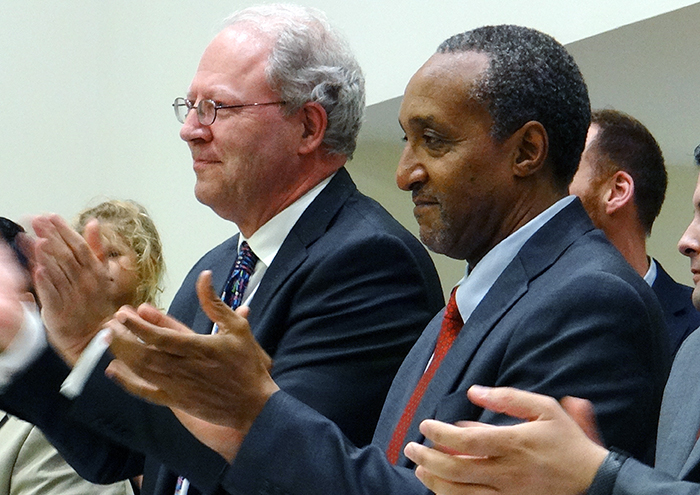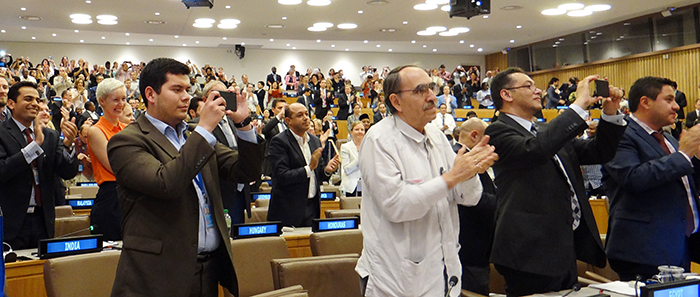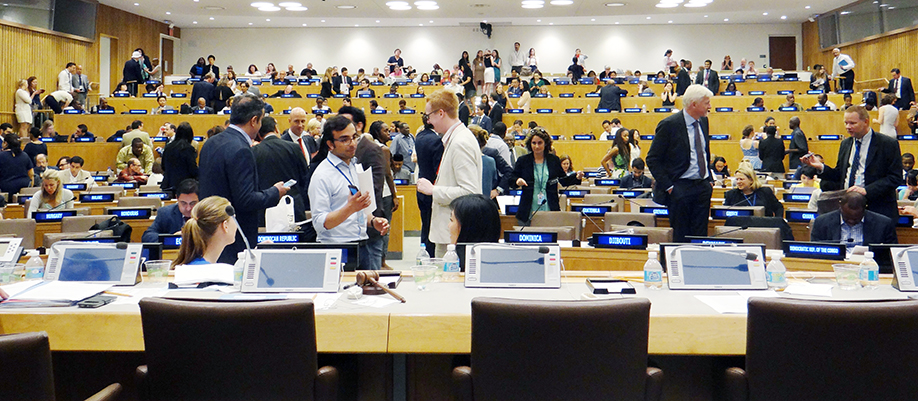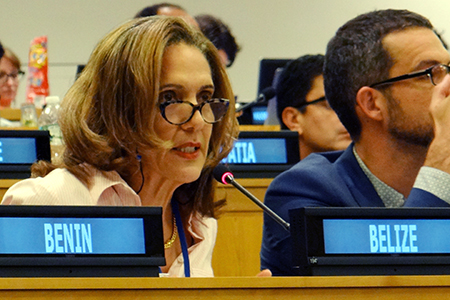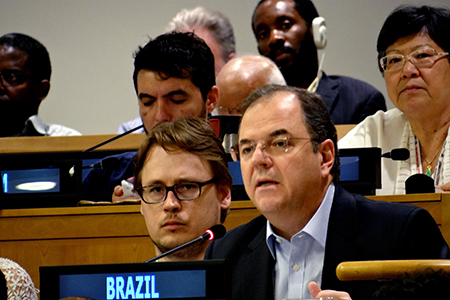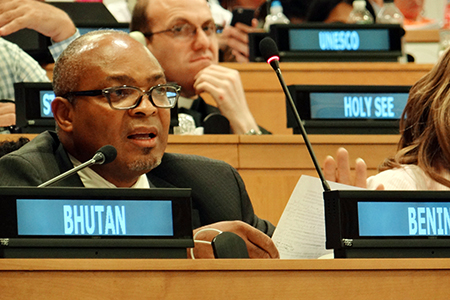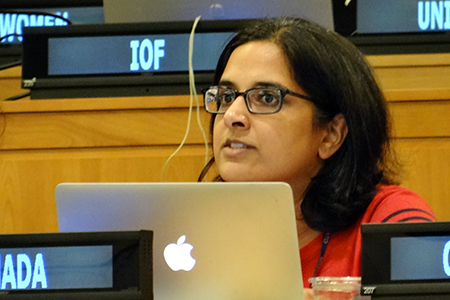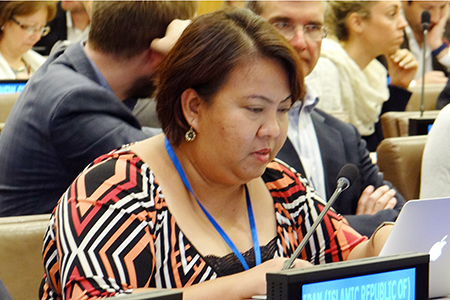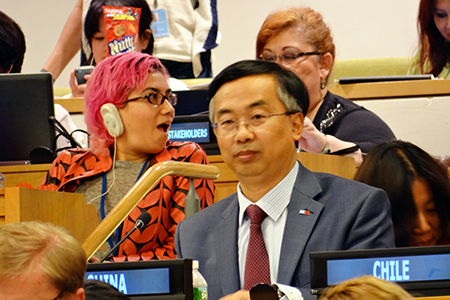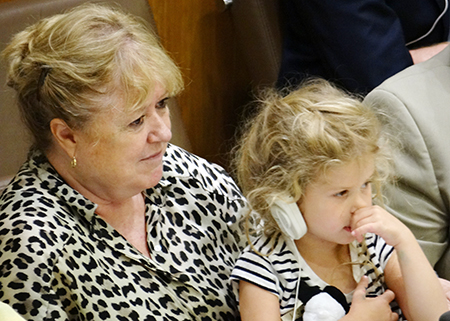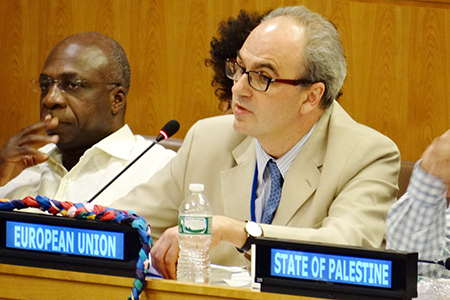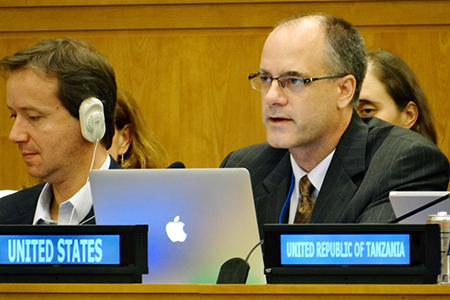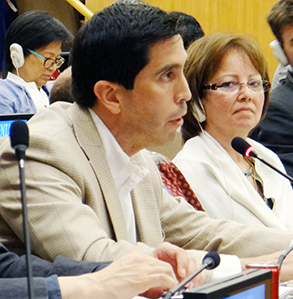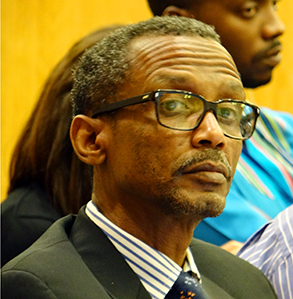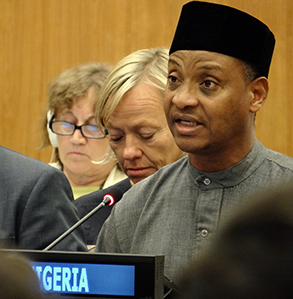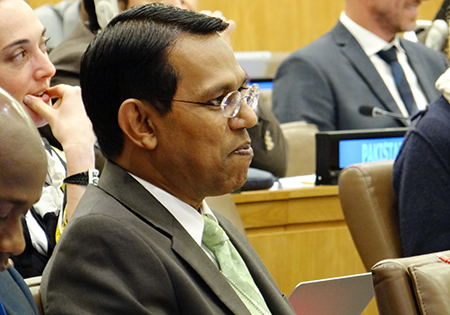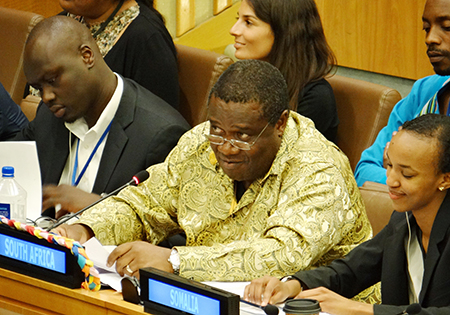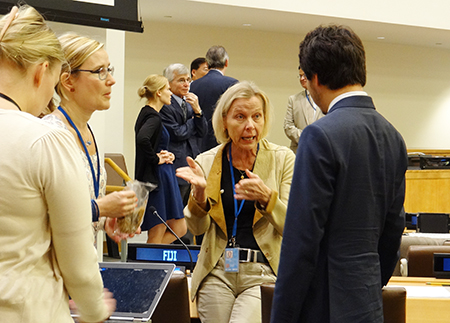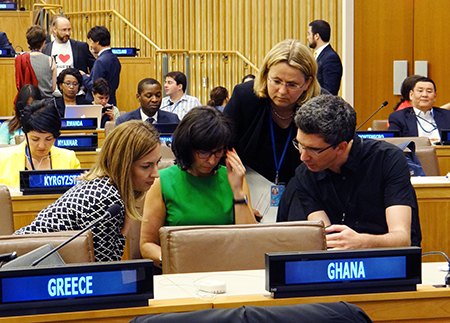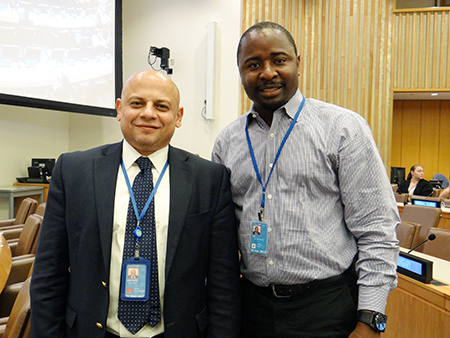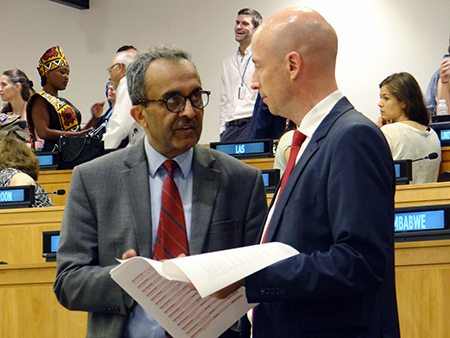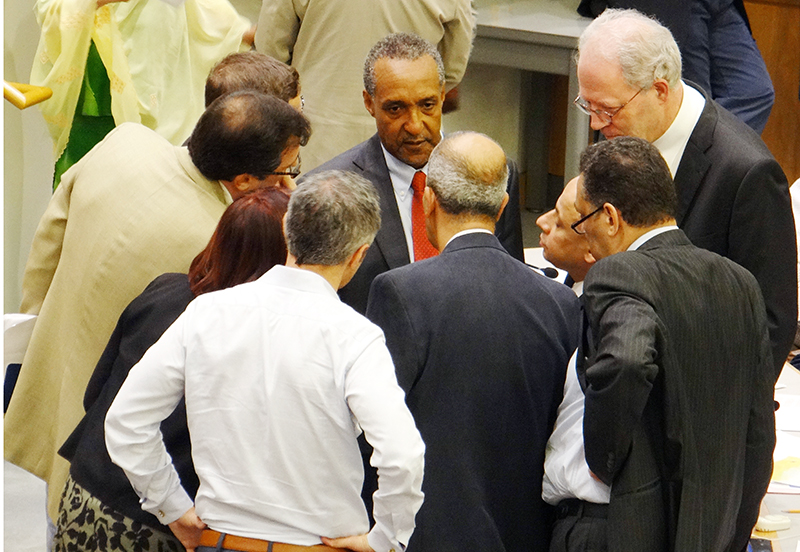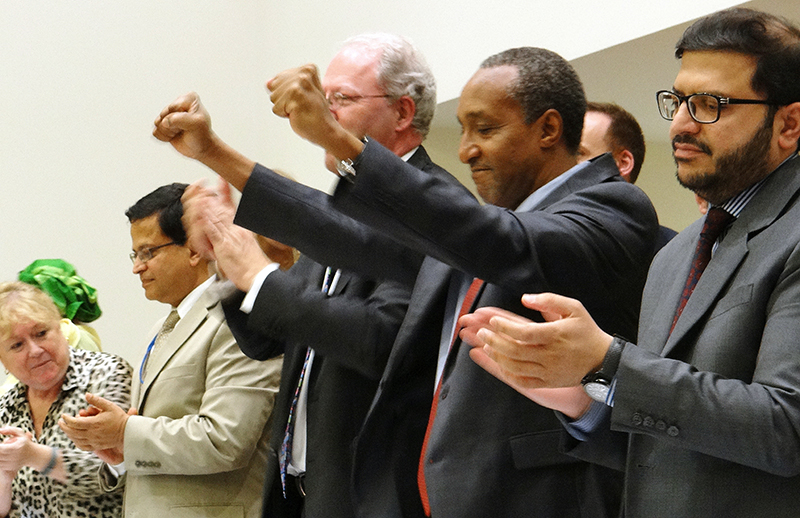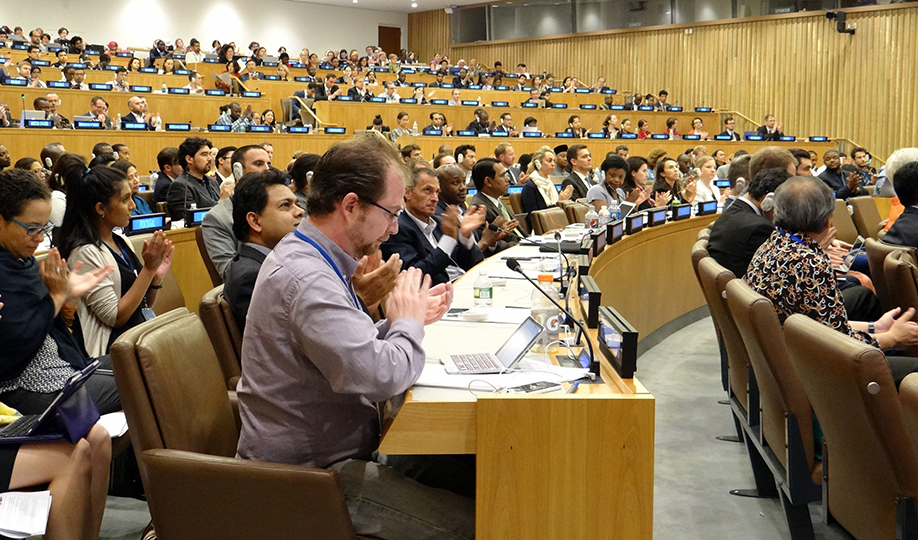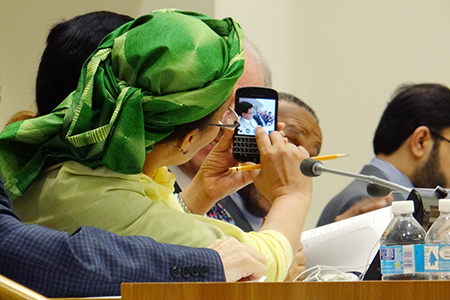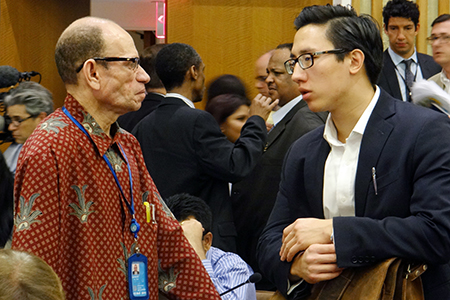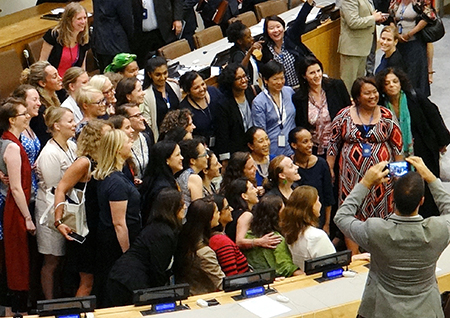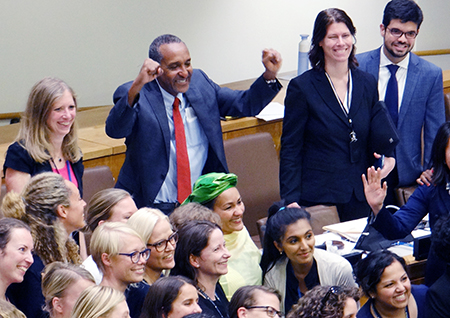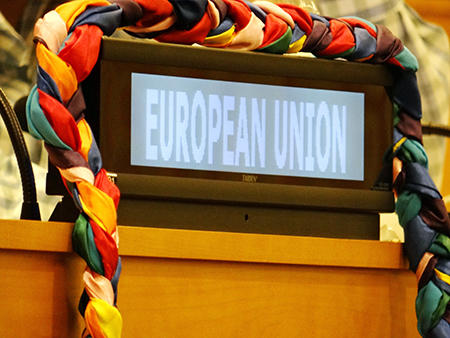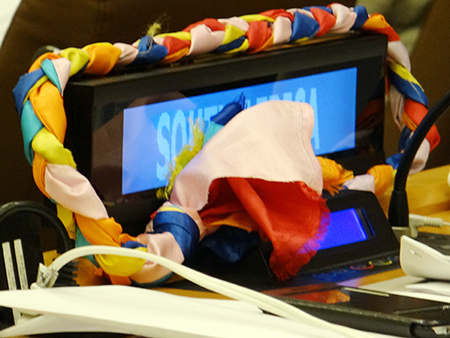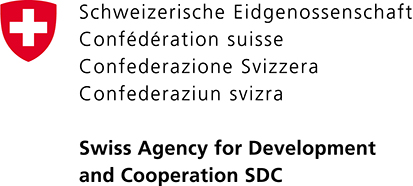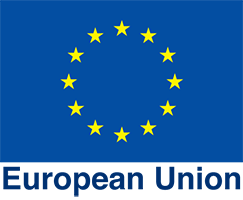|
 Delegates gathered at UN Headquarters on Sunday morning at 11:00 am, aiming to finalize and adopt the post-2015 development agenda: “Transforming Our World: The 2030 Agenda for Sustainable Development.”
Delegates gathered at UN Headquarters on Sunday morning at 11:00 am, aiming to finalize and adopt the post-2015 development agenda: “Transforming Our World: The 2030 Agenda for Sustainable Development.”
Last-minute discussions continued until mid-afternoon on several outstanding issues, including: placement of a reference to small island developing States in target 13.b; whether the term “colonial occupation” should be included with a reference to foreign occupation; whether to refer to “people” or “peoples,” in relation to the right of self-determination; and whether to “promote” or “ensure” benefit sharing from genetic resources, in targets 2.5 and 15.6.
The final text for adoption was circulated at 2:00 pm. Before opening the session, Co-Facilitator Macharia Kamau (Kenya) called attention to changes that had been made to paragraphs 34 (peace and security), 44 (international financial institutions), 62 (relationship with the Addis Ababa Action Agenda), 68 (international trade) and 69 (debt sustainability), noting that all had been agreed except for the issue relating to paragraph 34, which was still being discussed.
Discussions continued in the corridors and meeting rooms as the Co-Facilitators and delegations attempted to bridge remaining differences.
The plenary convened at 4:40 pm. Co-Facilitator Kamau introduced the final revisions to the text. The Secretariat outlined the two-stage approval process for the post-2015 development agenda, explaining that the current, 69th session of the UN General Assembly (UNGA) would take a decision to refer the document to the September summit, to be adopted by the 70th session. He said that due to the informal nature of the meeting, no formal reservations could be recorded, but that Member States could provide explanations of position (EOPs) to become part of the record of the UNGA 69th session, or could circulate letters stating their position. He noted that it is not a practice to attach reservations to UNGA resolutions.
Member States and their representative groups unanimously welcomed the outcome document on the post-2015 development agenda. Many noted that the negotiations had been difficult, and offered praise for the Co-Facilitators’ dedication and skillful steering of the process.
Mexico, for a group of developing countries, Nigeria, Turkey and Iran expressed their respective concerns about some aspects of the document. Several Member States commented that, while the document is not perfect, they appreciated the process and were willing to support the new agenda.
At 6:25 pm, Kamau announced that, based on the Co-Facilitators’ reading of the room, consensus had been established. He declared the post-2015 development agenda adopted, to long applause as delegates rose to their feet in acclamation.
The Republic of Korea, for the Presidency of the UN Economic and Social Council (ECOSOC), pledged to support a robust follow-up and review mechanism and Global Partnership that will bring all stakeholders together to implement the agenda. Calling this a historic document, he said that “history will judge it,” and advised delegates, “Our work is much more significant than you may think; today we are all winners.”
Co-Facilitators David Donoghue (Ireland) and Macharia Kamau expressed their appreciation for the passion and commitment of the negotiators from Member States in seeing the process to completion, as well as for Major Groups and other stakeholders, their own staff and the UN Secretariat. The meeting adjourned at 7:35 pm.
The Earth Negotiations Bulletin summary and analysis of the meeting will be available on Wednesday, 5 August 2015.
|






